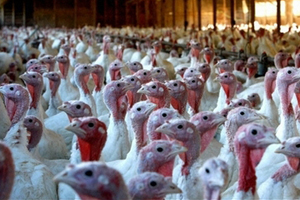US: “RFS distorts feed costs for all poultry producers”

The EPA’s failed management of the Renewable Fuel Standard (RFS) waiver process has distorted feed costs for turkey, livestock and all poultry producers, the National Turkey Federation president Joel Brandenberger has told the House Oversight Subcommittee on Energy Policy.
Ultimately, Brandenberger told the subcommittee, that distortion has unnecessarily increased the prices consumers pay for food at restaurants and grocery stores.
“While the government cannot control the weather or almost any other factor that can come to bear on the US corn supply, it fortunately has one tool still available that has the potential to directly impact corn demand,” said Brandenberger. “By adjusting the normally rigid RFS mandate down to align with current market conditions, the federal government can help avoid dangerous economic situations caused by the prolonged record high cost of corn.”
When Congress enacted the expanded RFS in the Energy Independence and Security Act of 2007, it granted EPA the authority to waive all or part of the RFS, if economic circumstances permit. States have petitioned the EPA for such a waiver in 2008 and again last year. Both times, EPA has denied the request.
“The RFS has destabilised corn and ethanol prices by offering an almost risk-free demand volume guarantee to the corn-based ethanol industry,” said Brandenberger. “Domestic and export corn users other than ethanol producers have been forced to bear a disproportionate share of market and price risk. Ethanol prices should reflect the fuel’s energy value relative to gasoline, not a corn price that is both inflated and destabilised by the inflexible RFS.”
“As corn is syphoned off to ethanol, animal agriculture is losing jobs in rural America,” said Brandenberger. Job creation in the livestock and poultry industry has been substantially reduced by the diversion of corn to ethanol production. Almost 1 million potential food sector jobs that could have been created from 2007 to 2011 were not.
The RFS was created by Congress in 2005 to mandate the required minimum amount of renewable fuel blended into motor fuels ann¬ually. In 2007, Congress increased the RFS significantly and added biodiesel, while permitting the EPA to govern implementation of the congressional mandate. Current U.S. biofuels policy contains escalating corn-based ethanol blending requirements that do not automatically adjust to energy and corn market realities.
Brandenberger concluded his statement to the subcommittee by noting, “We are paying the price now; ultimately everyone will end up paying more for this ill-conceived government policy.”
Source: National Turkey Federation













